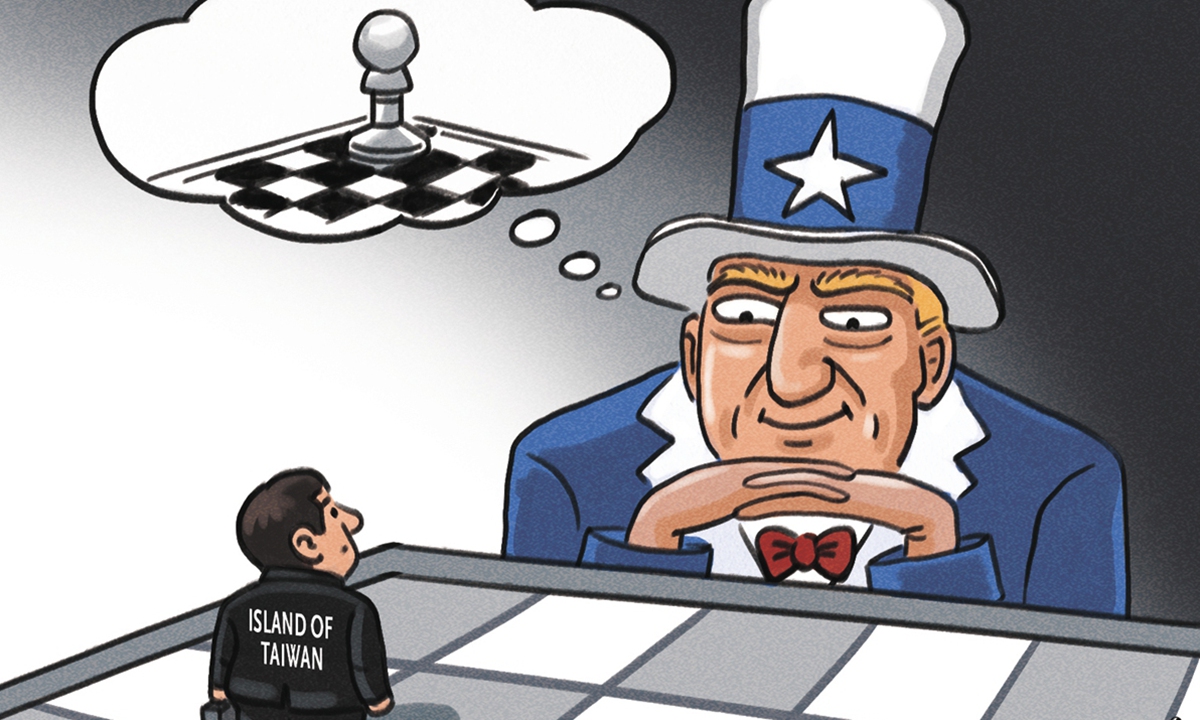
Illustration: Liu Rui/GT
The signing of the Regional Comprehensive Economic Partnership (RCEP) on Sunday signals the formation of the world's largest trading bloc with the greatest development potential. As an article in The Diplomat magazine said, "RCEP is a high-quality, forward-looking trade deal designed for 21st century international commerce."
While most countries in the Asia-Pacific region are engaged in multilateral cooperation, the US and the island of Taiwan, two economies absent from RCEP, are planning an Economic Prosperity Partnership Dialogue slated on November 20. But how can the two, marginalized in the Asian economic integration process, achieve their claimed goal of economic prosperity? The US-Taiwan economic dialogue is more of the result of political manipulation than bearing any real economic significance for the two.
Even the US has been absent from both RCEP and Comprehensive and Progressive Agreement for Trans-Pacific Partnership (CPTPP), two of the world's largest multilateral trade frameworks, let alone Taiwan, which attaches itself closely to the US chariot.
The Donald Trump administration showed no interest in multilateral cooperation, quitting the Trans-Pacific Partnership as soon as Trump assumed office. It was during these years that talks on RCEP gained momentum and regional countries showed more will than ever to cooperate and realize regional integration. It is a strategic miscalculation for the US to give up becoming part of this process and embark on a confrontational path that seeks to deal with Asia-Pacific ties with a geopolitical mentality.
The path was clearly not welcomed by regional countries, with the signing of RCEP as proof. The US has lost its economic initiative in the Asia-Pacific region and has failed to woo Asian countries economically. The signatories of RCEP even include close US allies in the Asia-Pacific region.
The US has spared no efforts to lobby regional countries to adopt a confrontational approach toward China as it does. Just two days ahead of the signing of RCEP, Marc Knapper, US deputy assistant secretary for South Korea and Japan, urged Japan and South Korea to speak out against China. But in the end, the countries wooed by the US have all joined RCEP, while it is the US as well as its loyal lackey Taiwan that are absent from it.
A US-Taiwan free trade agreement is nowhere in sight, and Taiwan's ticket to the CPTPP would require a tardy process. Thanks to the US, Taiwan's strained relations with the Chinese mainland have cost it both politically and economically. During the Ma Ying-jeou era, Taiwan's trade with the mainland ballooned under the Economic Cooperation Framework Agreement (ECFA), while under Tsai Ing-wen, the US and the island of Taiwan have been marginalized from regional trade. For Taiwan, except for its technological sector and industries that benefit from the ECFA, traditional industries will be hit hard. Taiwan scholars have predicted that Taiwan may face two depressed decades when regional countries see their economic and trade boom under RCEP.
The assets the US has given to Taiwan are a blame game between the Kuomintang and the Democratic Progressive Party, which are accusing each other of missing the chance to bring Taiwan to RCEP.
The US is playing the geopolitical card in the Asia-Pacific region, but only Taiwan has swallowed the bait. The two will eventually miss opportunities from the region's development.




